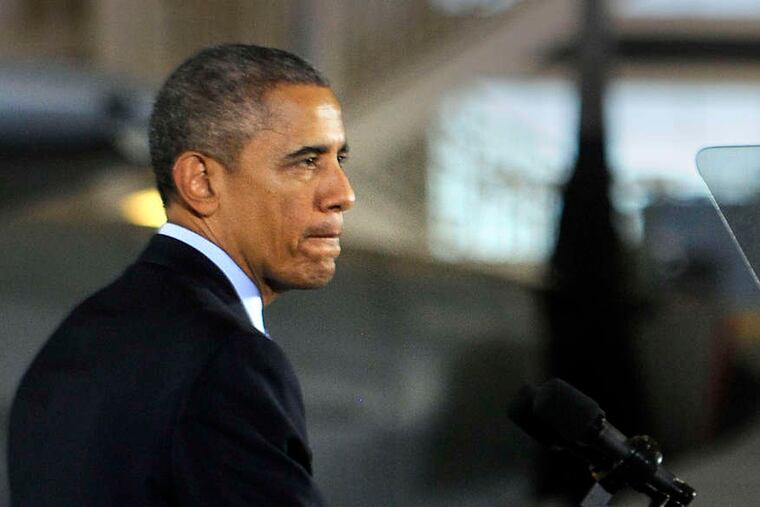Long division
In an era of increasingly grotesque wealth concentration and stubborn wage stagnation, shifting the federal tax burden from the middle toward the highest incomes shouldn't be as controversial as it is. Nevertheless, the proposal President Obama put forwar

In an era of increasingly grotesque wealth concentration and stubborn wage stagnation, shifting the federal tax burden from the middle toward the highest incomes shouldn't be as controversial as it is. Nevertheless, the proposal President Obama put forward in his State of the Union address Tuesday, which would raise taxes on investments by hundreds of billions of dollars to fund credits for families of more modest means, is the Democratic counterpoint to endless Republican attempts to repeal the Affordable Care Act: an appeal to popular and partisan sentiment that will go nowhere in the current political environment.
Bearing the scars of past attempts to bargain with Republicans, and having presided over the grueling path to an economic recovery that has finally gained momentum, Obama was certainly entitled to stake out the territory he hopes his party will stand for going into the next presidential election. But this State of the Union address was delivered to the most hostile Congress of his tenure, with Republicans in full control for the first time. If the last two years of Obama's presidency are to be more than a prelude to the next administration - and let's hold out fervent, if not desperate, hope that they will be - the president and Congress will have to do more than reiterate their favorite partisan attachments.
Some aspects of Obama's stated priorities in his "fourth quarter" could appeal to both teams. More tax credits and funding for child care, higher education, and two-earner families should have broad resonance, especially as income inequality and stagnation have become a more bipartisan concern. Obama's stated support for more free-trade agreements and an authorization of use of force against Islamic State extremists also hold appeal for the party opposite.
To have any chance of advancing his legislative agenda amid divided government, Obama will have to make true concessions. The Keystone XL pipeline is one obvious opportunity, being not nearly as world-shaking as its enemies or friends have suggested. Completing the project simply isn't going to make or break global climate change or Canadian tar-sands exploitation. The president ought to unclog the project in exchange for Republican movement on one of his initiatives.
Obama previously proposed corporate-tax reductions, a concession that could be the basis for a larger tax-reform deal. Both the president and Republican leaders have expressed support for such a negotiation.
Of course, the dominant theme on both sides - and the safest prediction - is polarization. But any substantial improvement of the government's collective state is unlikely without a degree of union.